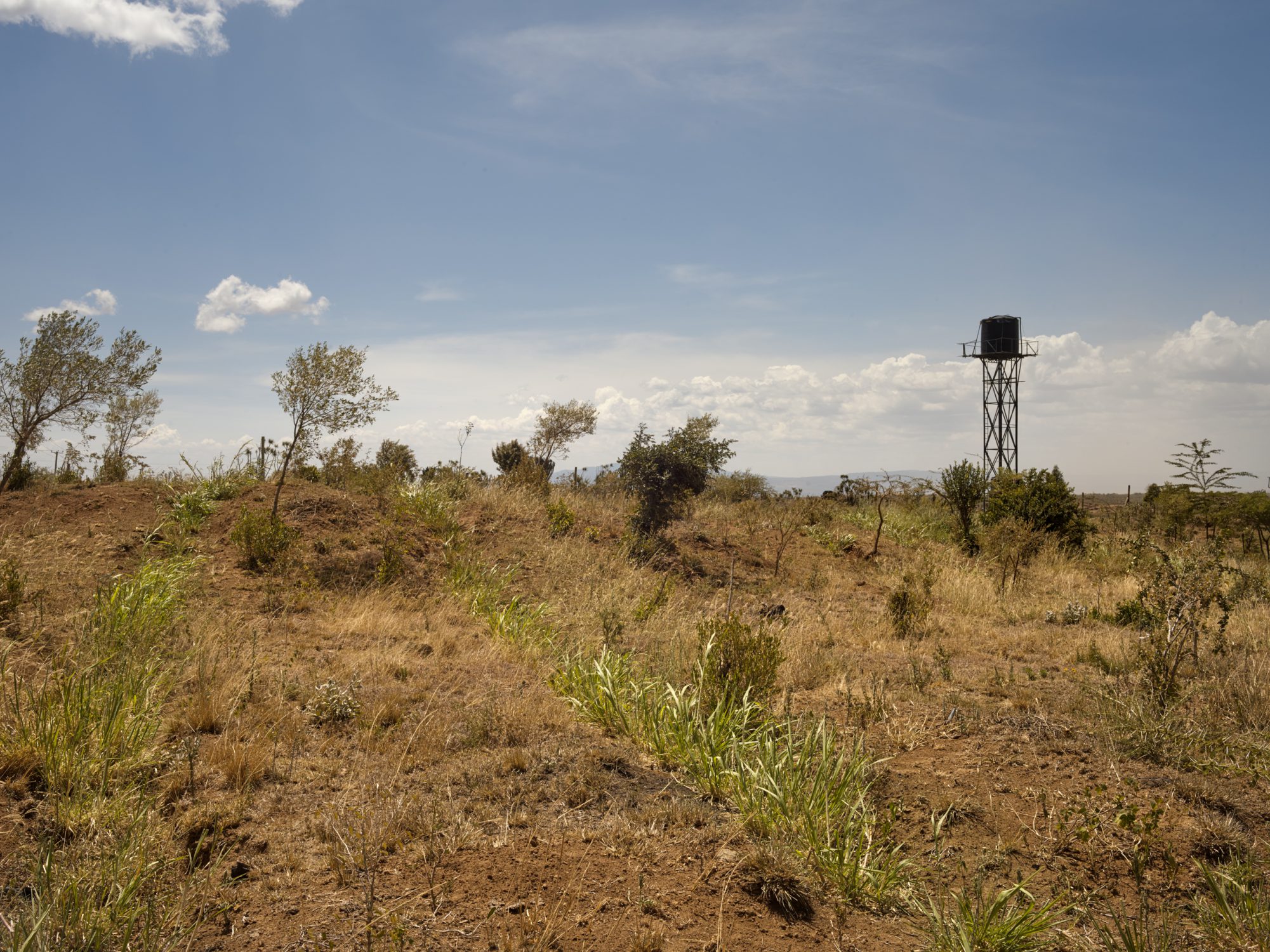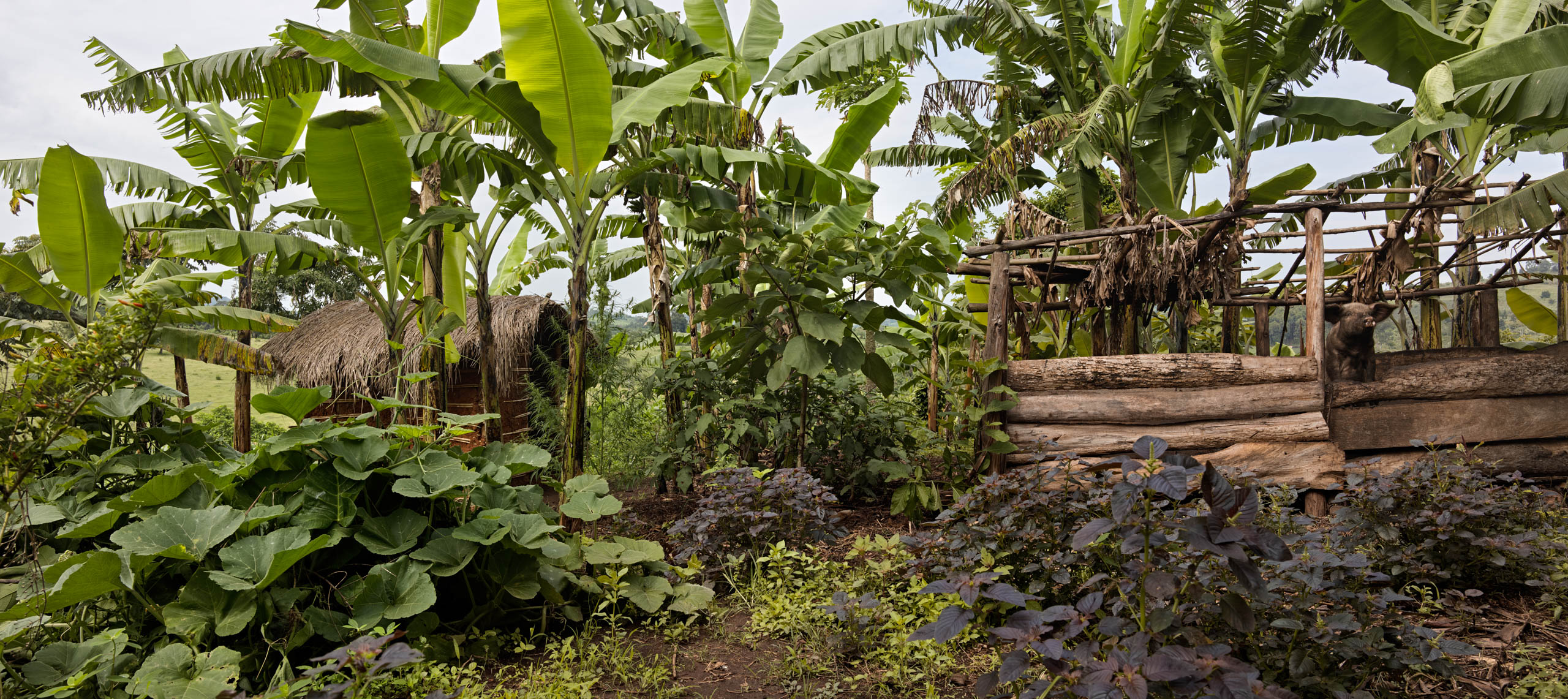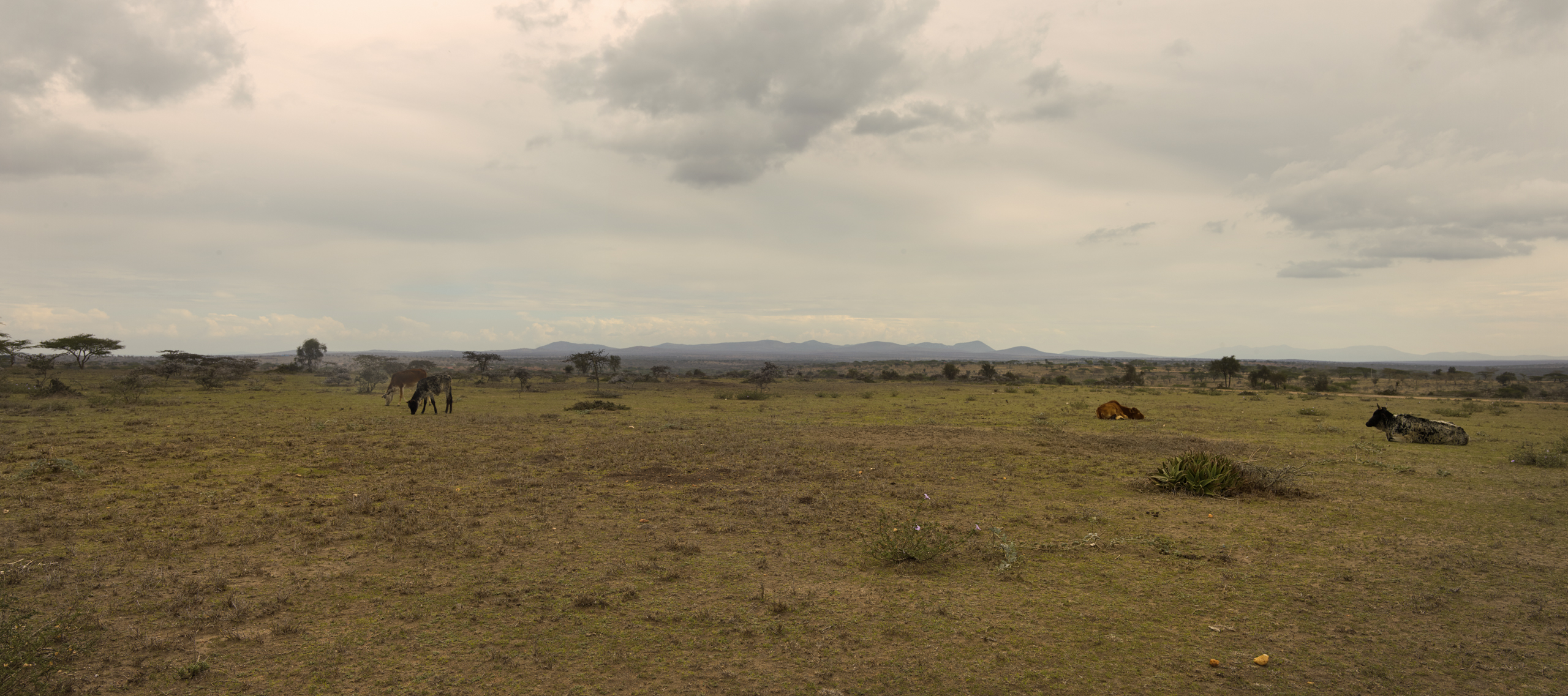
We are on our way to see Benedict Sakari in Kajiado, in the Mashuru district in eastern Kenya, one of the driest parts of the country, where it has not rained for a very long time.
The story of Benedict Sakari, a technical engineer in the telecoms branch, is the story of a technician from Nairobi who went in search of a piece of land where he could grow organic food for his family. Land in western Kenya is fertile, but expensive. When visiting a friend in the east, in the dry Mashuru district, he decided to buy a 30-hectare plot, which would leave him with enough money to pay for the drilling of a well – if there was any water there at all. It was the start of an adventure that by chance began in 2020, the time of the Covid pandemic and a total lockdown.
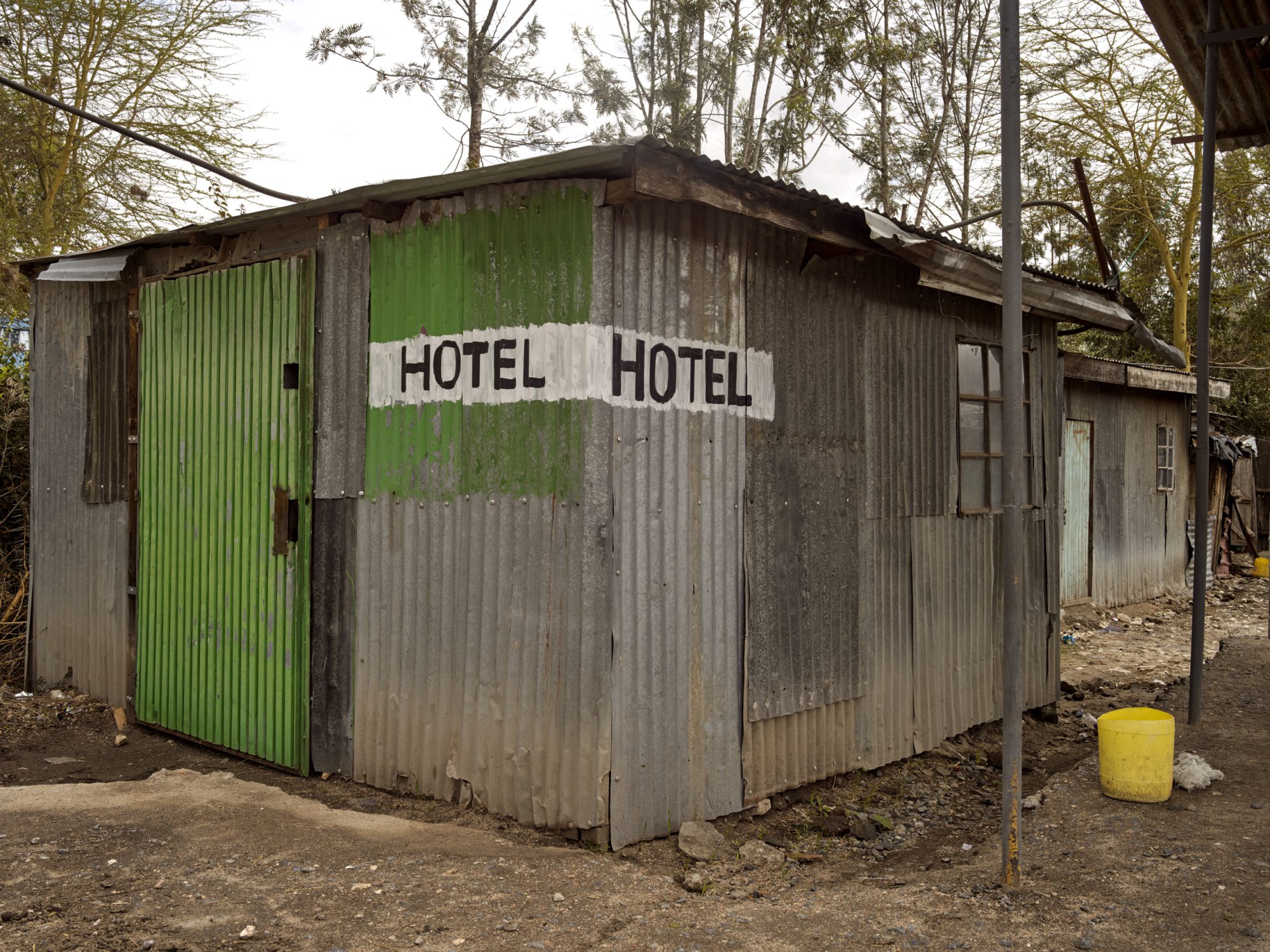
On a dark desert highway, cool wind in my hair
We drive along the road that Benedict has taken dozens of times from Nairobi, watching the landscape change from lush green to a desert. This is the land where the Maasai are struggling to survive with nothing, where livestock is dying for lack of grass and water. Next to the road is the skeleton of a zebra killed by hunger and thirst, or by traffic as it crossed over in search of water and food.
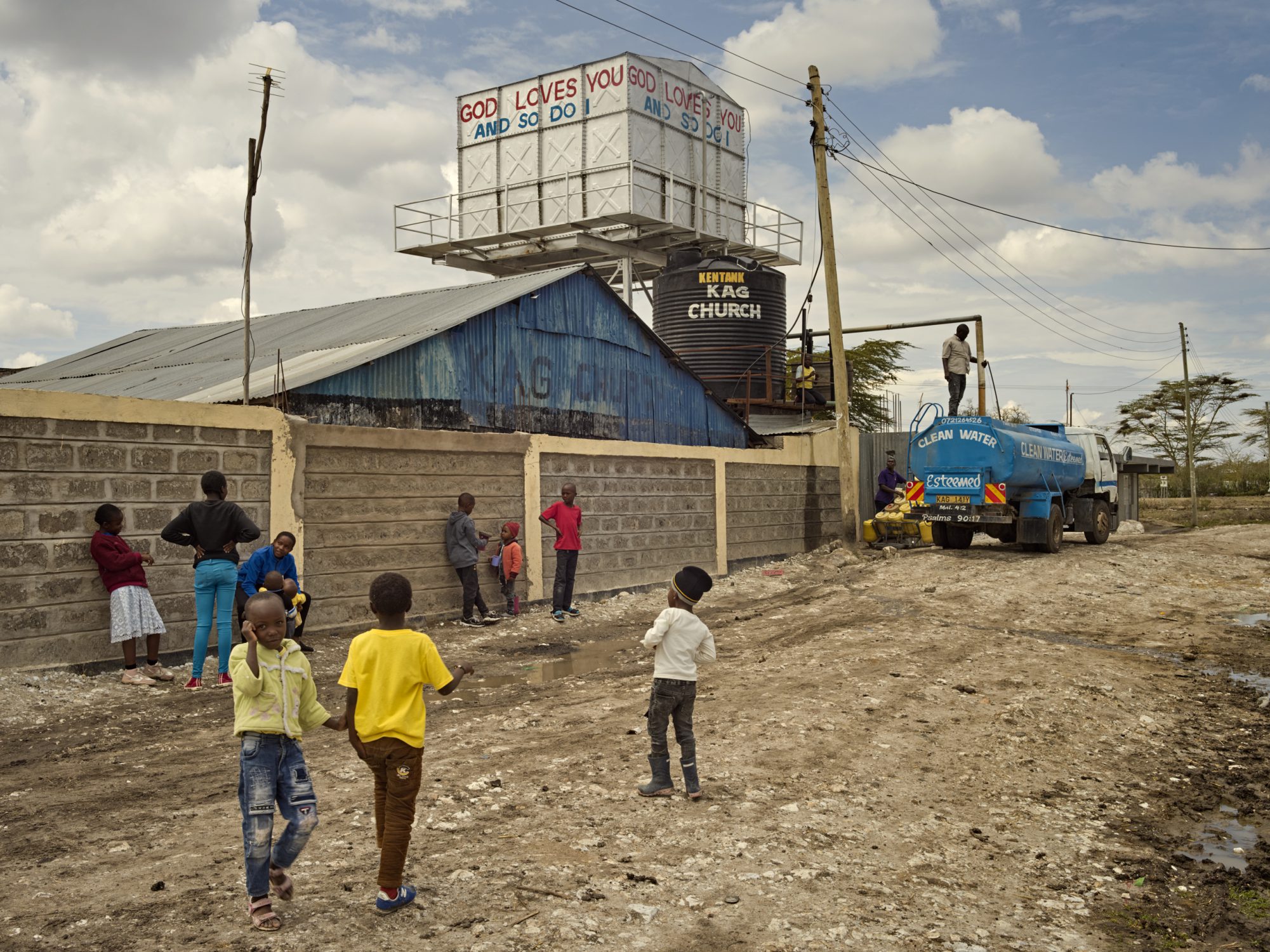
God Loves You
The water for this church and its congregation has to be delivered by tanks. The Maasai do not believe in the God of the white people but instead in a God called Engai, who had three children. He gave his children three different gifts. The first child was given a bow and arrow; the hunters are descended from him. The second child was given a plough; his offspring are the farmers. The third child was given a stick; he could use it to herd the livestock. It is from this third child that the Maasai are descended. Now they have only the stick.
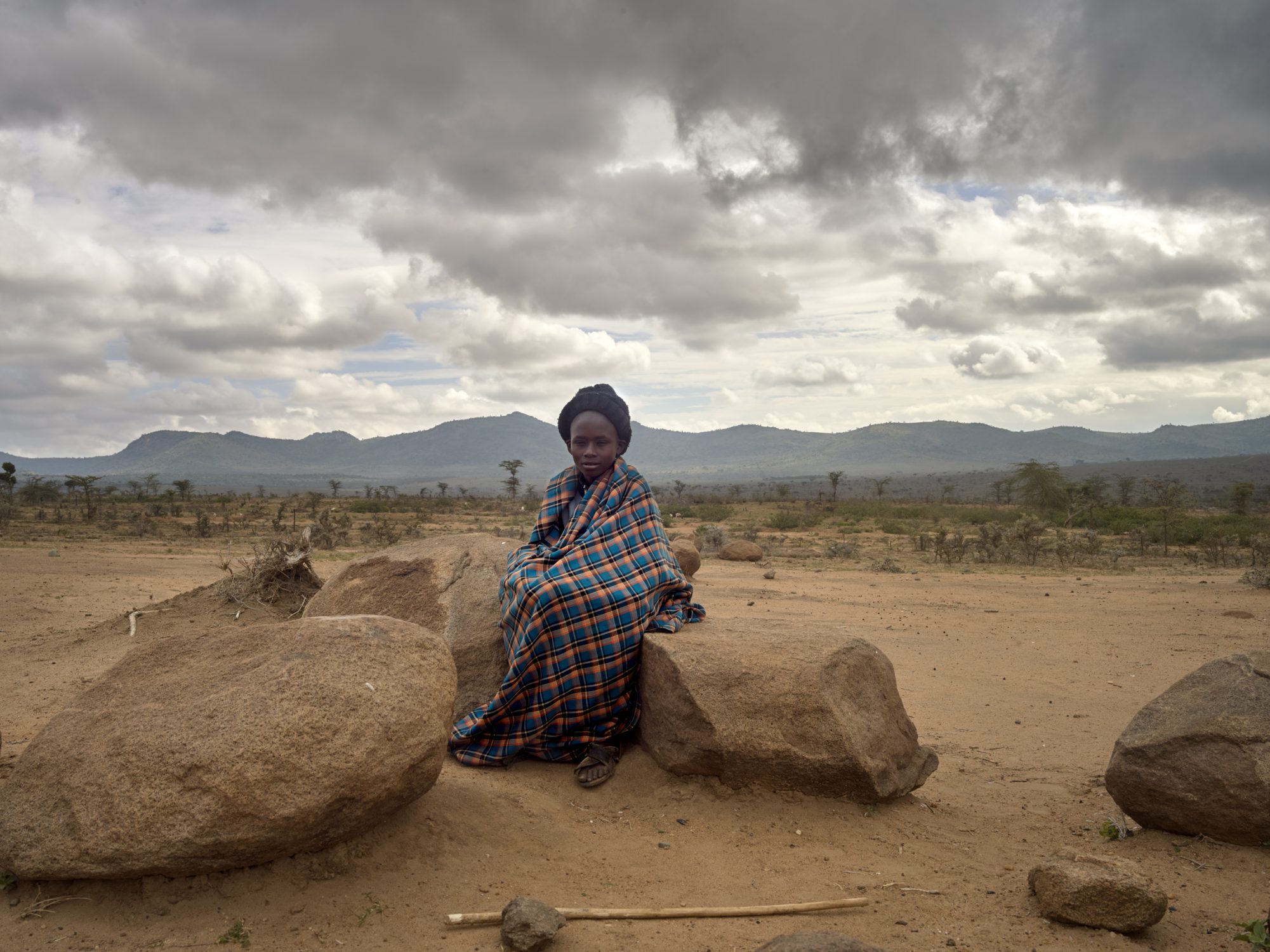
The girl and the stick
This Maasai girl has been sitting here for hours. Her five goats are searching for the last green leaves to be found anywhere nearby. She has no need of her stick to tend the herd.
From our driver and guide we learn that the area in the background that seems more green and fertile is closed off with an electric fence, since it belongs to a national park where white tourists come to spot elephants.
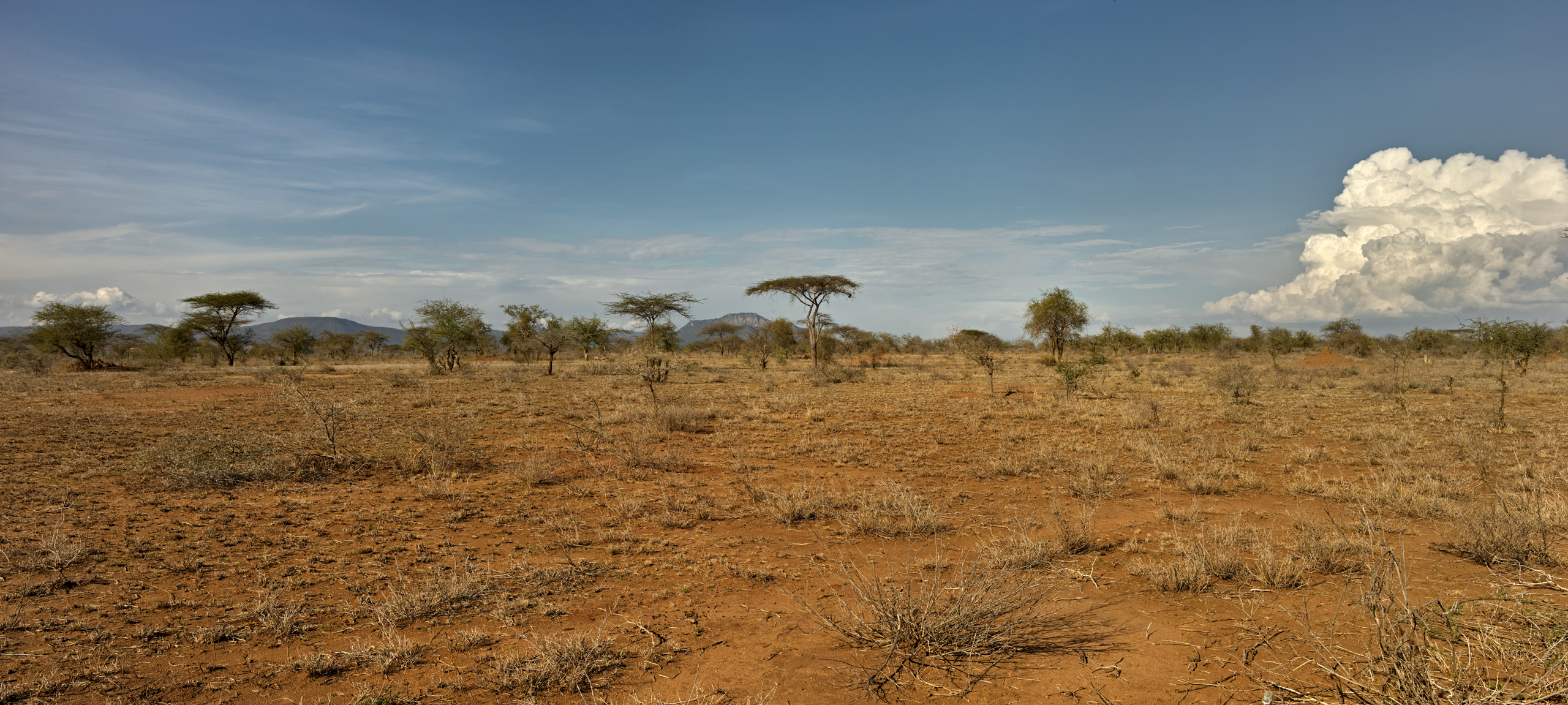
The neighbour’s land…
After a drive of more than four hours across an increasingly dry landscape, we reach Benedict Sakari’s farm. I photograph the landscape, his neighbour’s land, beautiful to look at until you realize that it has to feed the whole community and that the livestock in turn must feed the land.
We wonder what induced a telecoms engineer from Nairobi to start a farm here.
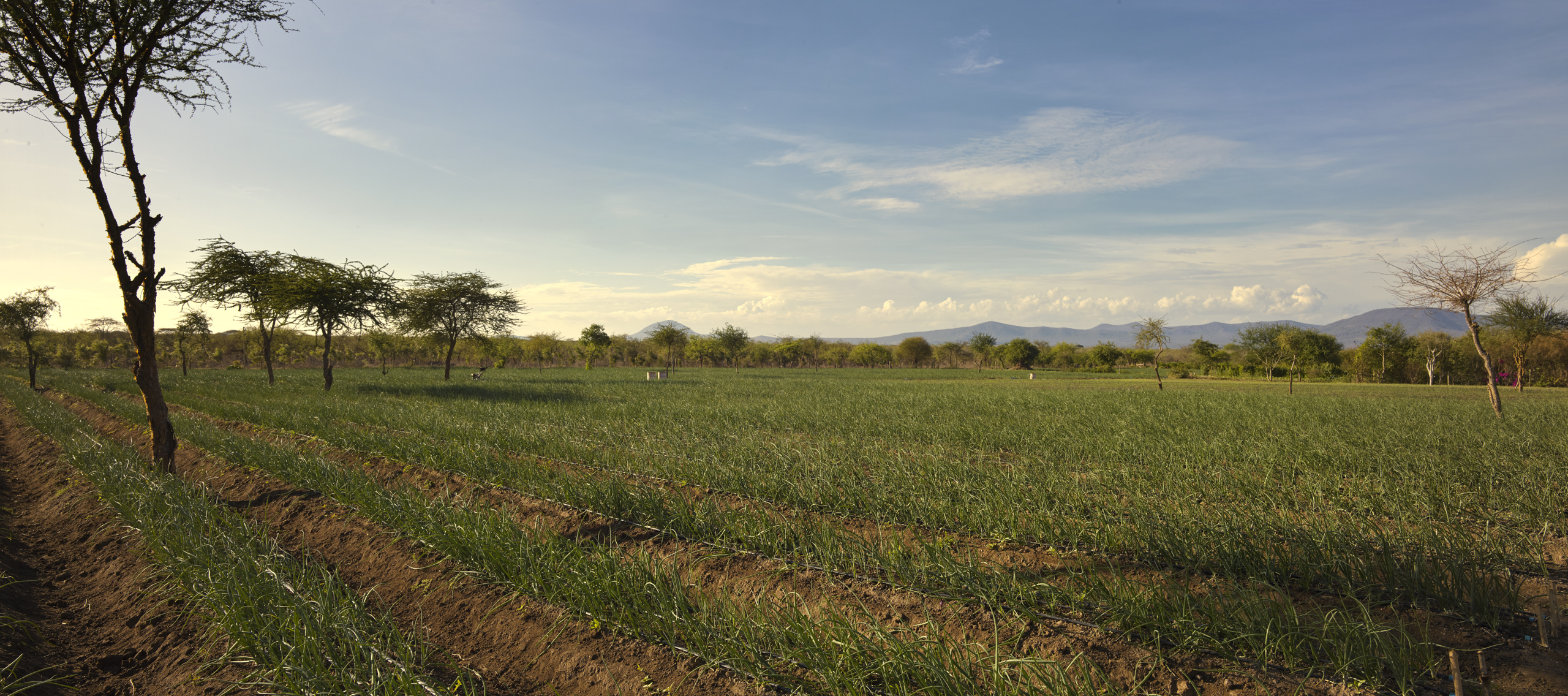
... Benedict’s land
We find the answer to that question behind the gates of his farm, a lush oasis with mangoes, pawpaws, avocados, pomegranates, grapes, ripening bananas, cooking bananas, pixie oranges, Washington oranges, tangerines, lemons and countless other crops, as well as cows, chickens and ducks.
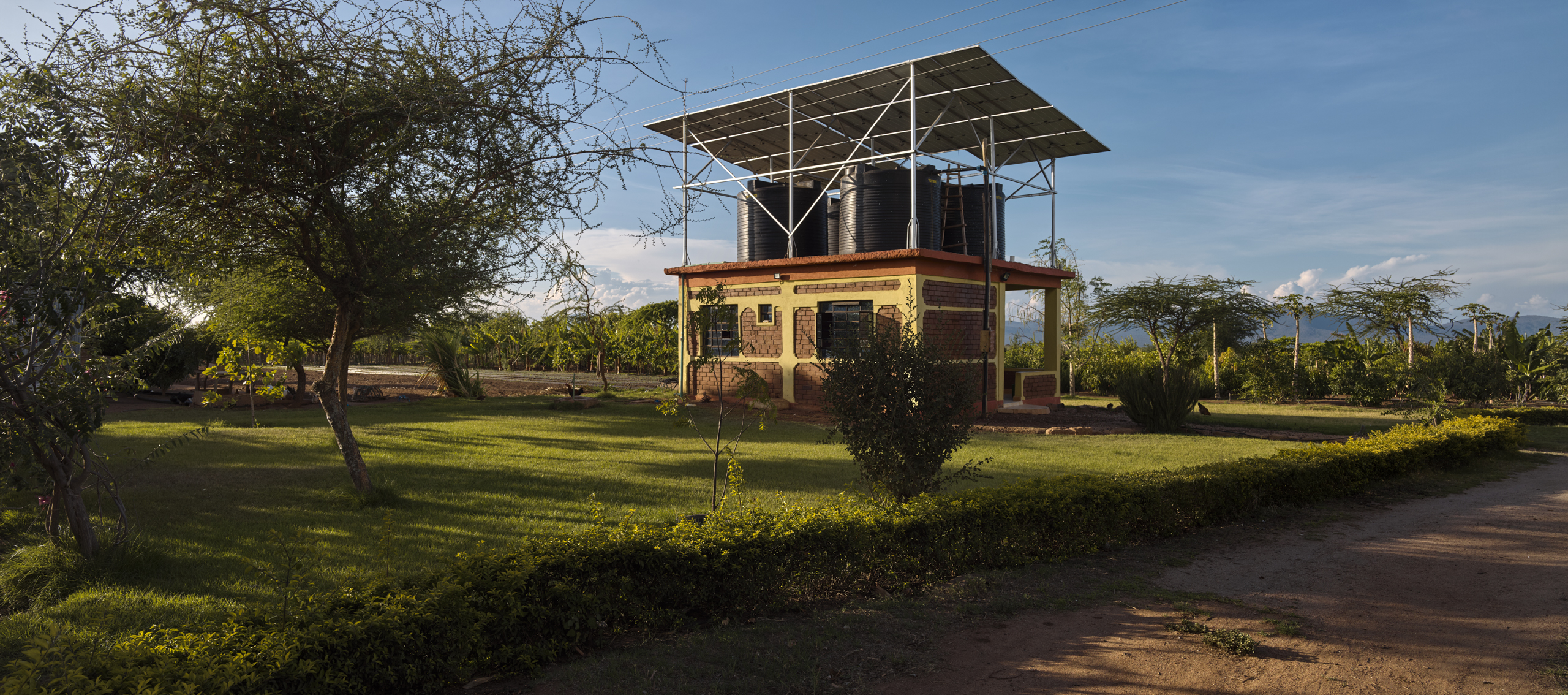
The Sunde Olive Farm
Benedict tells his story in the house he built at the start of lockdown. He’d only just got hold of the land, as dry and barren as his neighbour’s, when lockdown was announced.
He made a virtue out of necessity and started building the farm. He went in search of water and won the jackpot. The borehole he found not only provides the farm with water but enables him to share both water and knowledge with his neighbours. He urges them to plant trees and to switch to nature-inclusive farming methods.
"Seeing things grow and seeing the landscape change is my biggest achievement ever. Once I started, there was no way back."
Benedict Sakari
Organic Grower
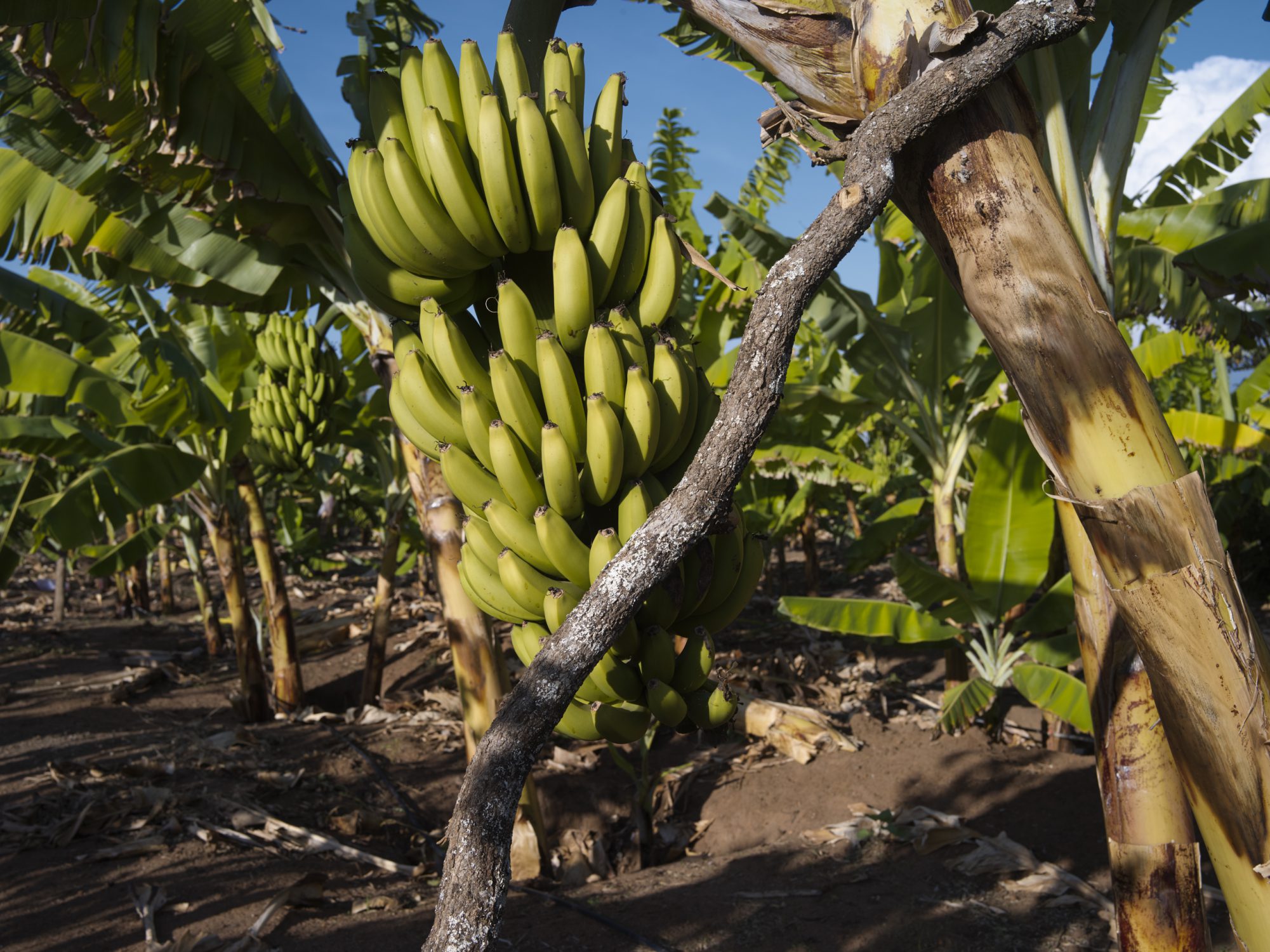
"In engineering, the outcome of your actions was predetermined, but nature is never predictable and I needed to get used to that."
Benedict amassed his knowledge of farming through self-tuition and achieved his aims through hard work, trial and error, perseverance and faith in nature.
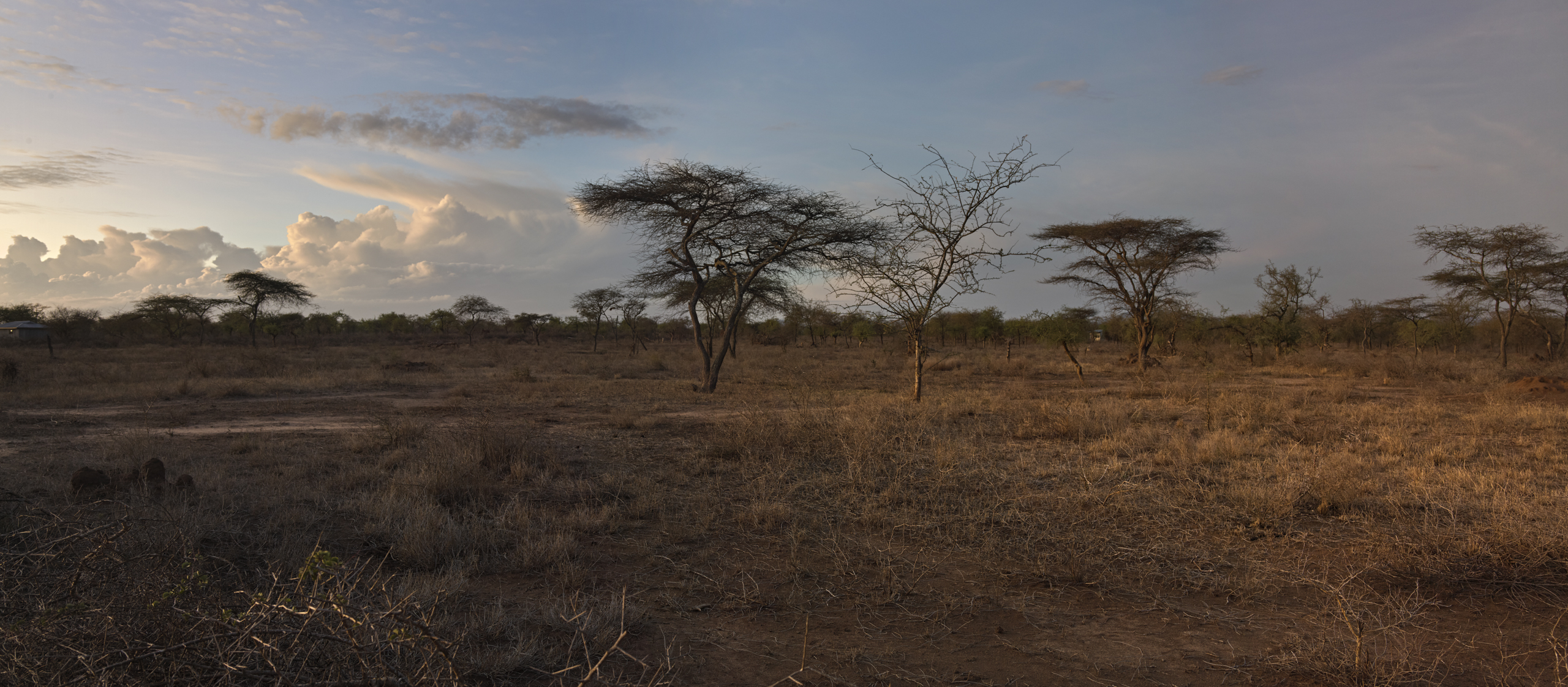
"It is not the land that we own that will give us a future. Everyone will gain when we are able to transform the traditional way of cattle farming, which now involves having grass and cutting down trees."
We have selected another two stories that might inspire you.
